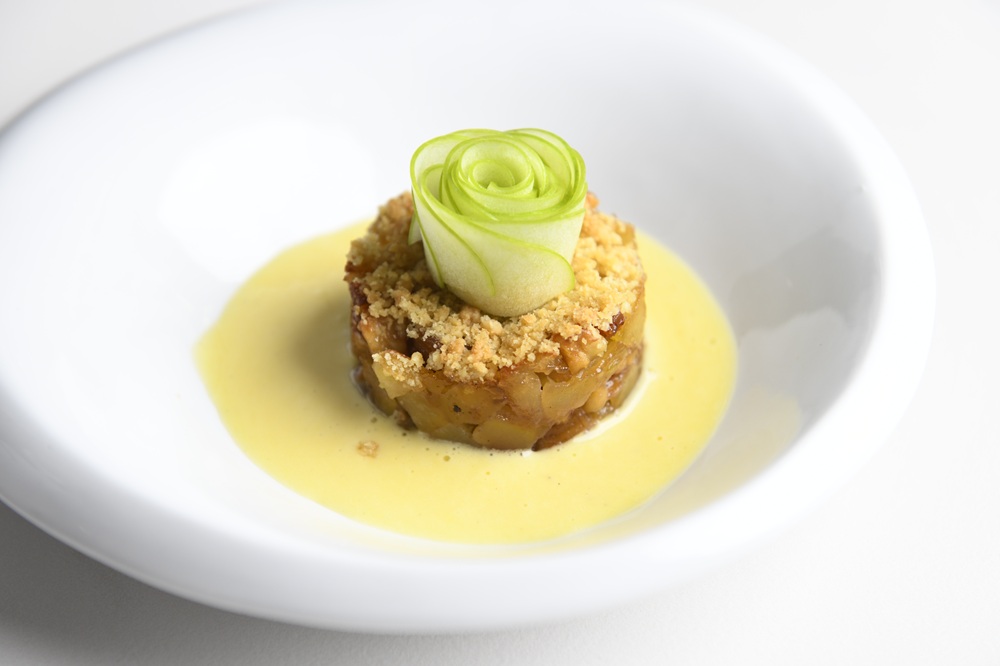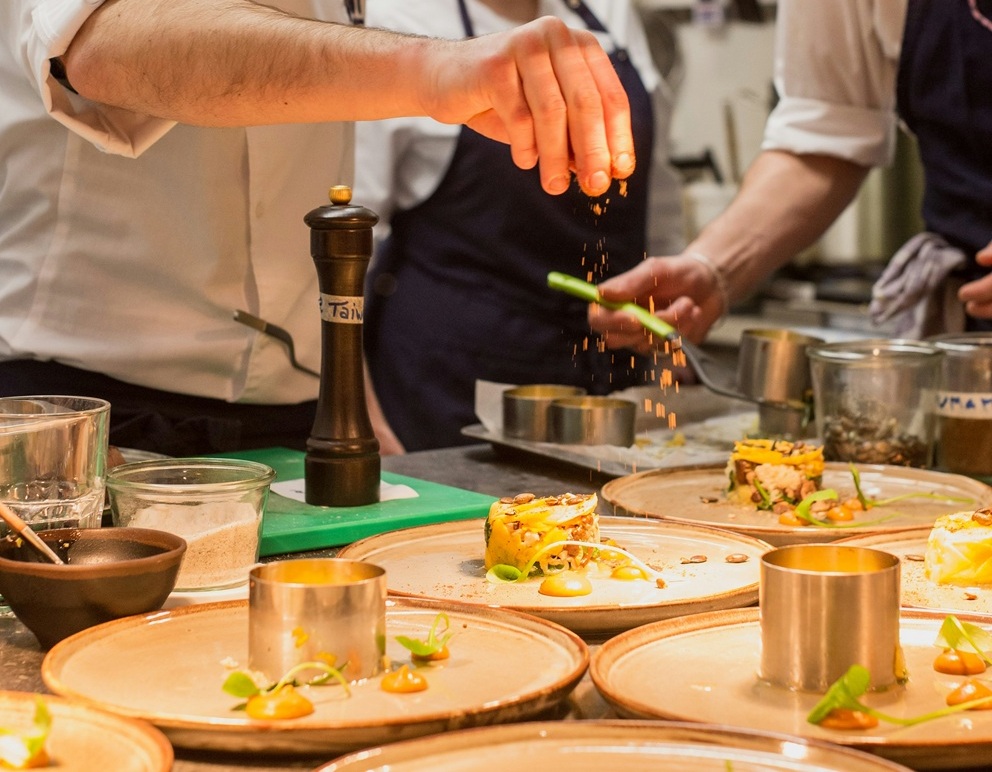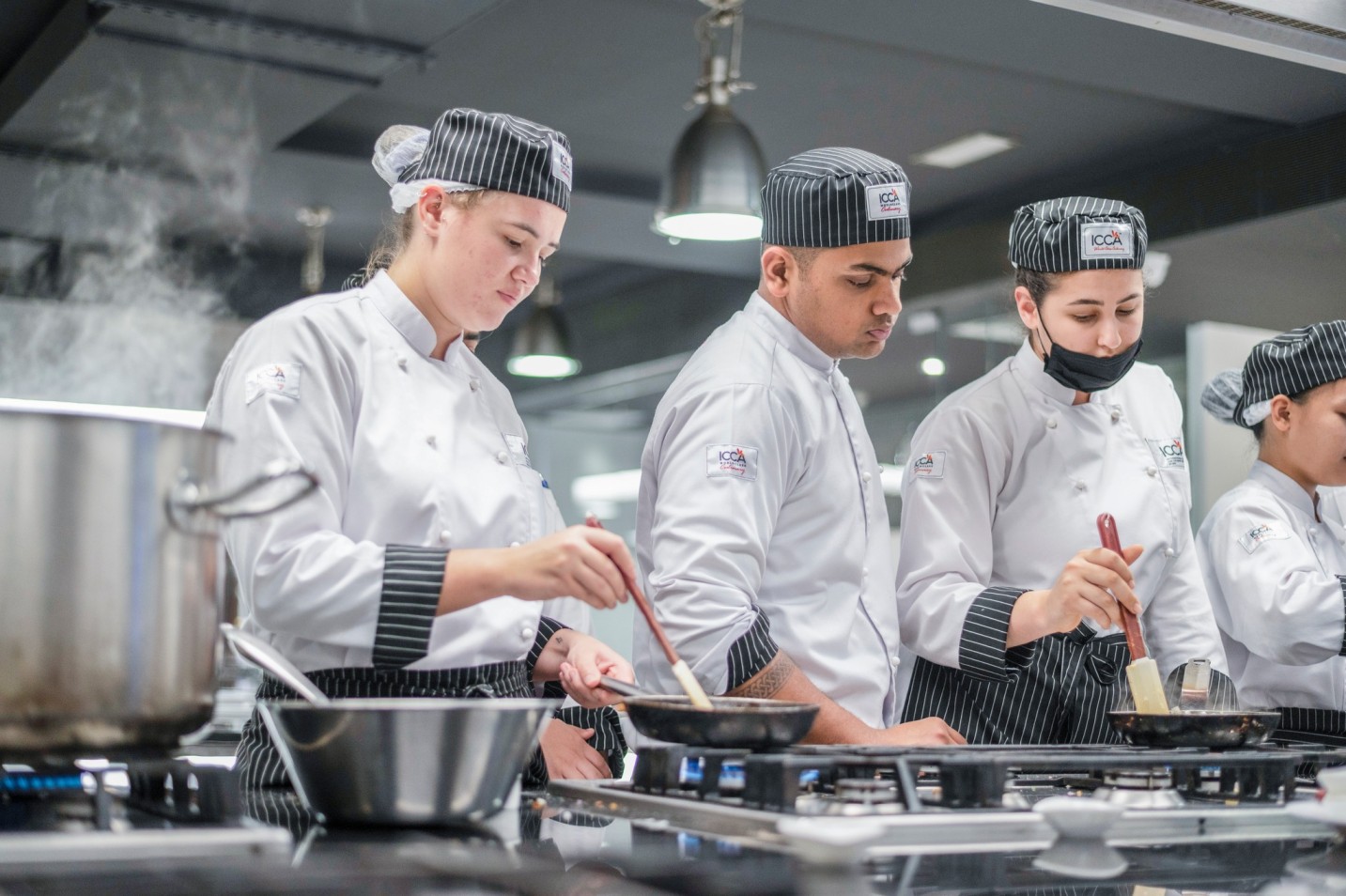At the International Centre for Culinary Arts (ICCA Dubai), our pool of talented chef instructors are industry veterans who bring years of work experience with top brands from around the world to the training delivered here.
Shanaaz Raja, Director of Courses at ICCA Dubai breaks down what it takes to become a part of an elite group of culinary educators like the Chef Instructor team at ICCA Dubai.
"The essence of becoming a great chef is becoming a great teacher." It was 2008, and the Chef that mouthed this line was the renowned Celebrity Chef Gordon Ramsey, and "Hell's Kitchen," the Food Network's wildly popular reality show, was the setting.
In twelve emphatic words, he dismissed the oft-quoted line, "Those who can't do, teach." The ball had finally landed in the court of culinary educators.
Culinary educators, especially those who teach hands-on culinary skills, are in a league of their own. What they possess is the extraordinary skill of explaining and demonstrating what they know to an audience of aspiring chefs. An ability that needs to be honed and developed over years of experience, much akin to cooking in front of a camera, where one only gets better with time.
-min.avif)
What It Takes to Be a Chef Instructor
"Culinary educators must have a certain personality," explains Shanaaz Raja. "This is not a role for those content to be behind the scenes. Effective teaching must always include preparation along with a good dose of showmanship."
But Ms. Raja is also clear that just being a showman isn’t adequate. Good command of the subject with excellent culinary skills is among the top of ICCA Dubai’s list of must-haves for a culinary instructor. While a confident personality and leadership qualities are certainly crucial, she places a lot of importance on confident hands-on skills. "At ICCA Dubai, we also look at the dexterity and artistry of the instructor while they demonstrate culinary techniques to the student chefs."
Beyond technical knowledge and skills, teaching is a people business and requires above-par interpersonal skills, including qualities such as patience, empathy, and a knack for being firm but kind. "A fine instructor encourages students to learn and grow while prudently nurturing their questioning mindset," Ms. Raja accentuates.
-min.avif)
Roadmap to Become a Chef Instructor at ICCA Dubai
"Teaching how to cook is an art, but this is not developed overnight. "There is a need for aspiring chef instructors to go through the mandatory process of educating and training themselves, and constantly developing their personality to prepare for the role," explains Ms. Raja as she describes the roadmap to becoming a Chef Instructor.
Among the statutory requirements for aspiring chef instructors to teach at a culinary school like ICCA Dubai is formal culinary education with adequate years of hands-on industry experience. This, along with active participation in Professional Development Programs and conscious development of training and mentoring skills, is highly recommended.
The second stage in ICCA's hiring process is the preliminary interview, where the candidate's demeanour, confidence, and expression are evaluated in the context of the role of an instructor.
If the preliminary interview is a success, the aspirant undergoes a trade test where their skills and command of the subject are evaluated.
Following the trade assessment, the candidate is then required to conduct a class for students. "Here, we evaluate if the aspirants can effectively engage and hold the attention of a class of student chefs. Their communication skills and passion for teaching and inspiring young chefs come into serious play here.
The last leg of the hiring process at ICCA Dubai is a review of the feedback provided by the concerned team and a final interview. And Ms. Raja clearly states that the candidate the ICCA team finally picks is someone who can inspire, teach, and mentor young chefs. "The best instructors can truly stimulate their students’ culinary and intellectual growth as well as boost their self-confidence," she adds.
-min.avif)
For those considering a career as a chef instructor, Shanaaz Raja explains how it allows for a good work-life balance and develops a wide range of complementary skills such as digital dexterity, interpersonal skills, and higher-order thinking skills that would otherwise go untapped as a chef working behind the scenes in a professional kitchen.
The personal fulfillment that one enjoys in this role is immense. And Ms. Raja vouches for this as she highlights how seeing and knowing about the success of the students one has taught and mentored is a gift only a teacher can experience. "After all, one of the greatest rewards of being a Chef Instructor is making lives happen," she says with absolute certainty.


.jpg)






